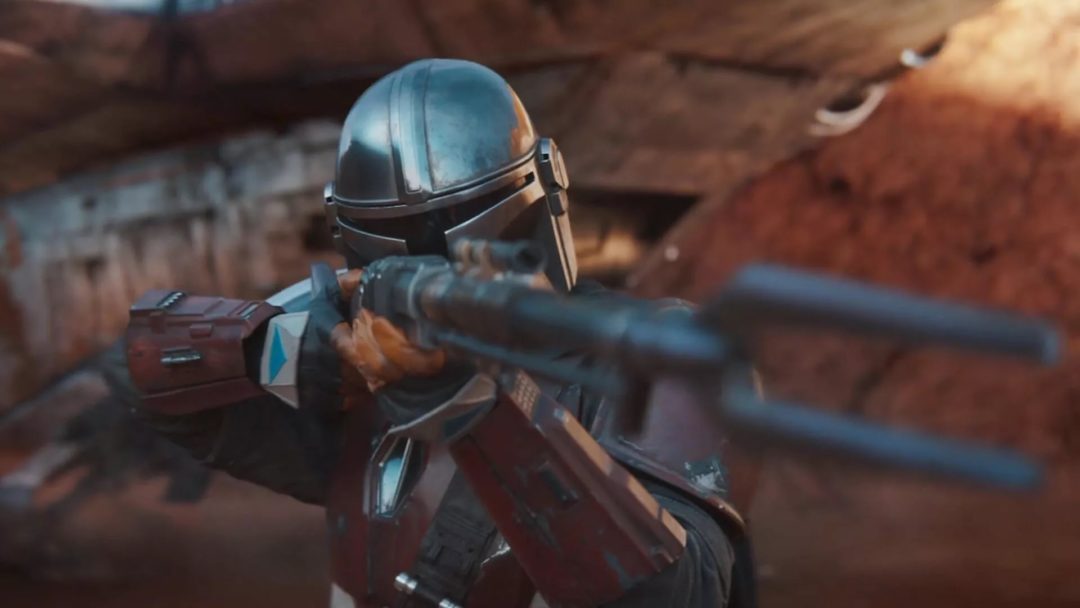Last week, the New York Times revealed that The Mandalorian will feature “a dramatic Star Wars-universe spoiler in the first episode.” This announcement was noteworthy for a couple of reasons.
Most immediately, it demonstrates how profoundly spoilers have influenced the way in which we talk about mass media. After all, up till now, when works of art have delivered major information about themselves or related media, they have usually been called “plot points,” not spoilers. This isn’t quite up there with “how you feel about something is just as much a spoiler as saying who dies” or the argument that retweeting an official Twitter account counts as a spoiler, but it is close.
There are legitimate reasons for audiences to be concerned about spoilers, particularly in the era of social media and increased content fragmentation. Everybody is both extremely online and extremely vocal, and they tend to react immediately to any media they consume, making it hard for other people to avoid key plot points long enough to consume the media in question.
Media companies have become increasingly aware of this concern, although most have responded in a clumsy way. Netflix will occasionally offer screeners with a laundry list of plot points that they explicitly do not want reviewers to mention. Blade Runner 2049‘s director famously instructed critics to review his film without mentioning almost any details, which made it a tough sell to audiences.
One company has emerged very much ahead of the pack in terms of understanding the marketing potential of spoiler phobia. Over the past couple of years, Disney has shrewdly and smartly weaponized spoiler culture as a way of selling their product immediately and directly to fans. The company has been incredibly canny.

Spoiler phobia handily disarms a lot of potential criticism by taking any plot points off the table. It might be reasonable to criticize Captain Marvel for its decision to focus on a character who has no history or backstory until roughly 40 minutes into the film, reducing the plot to a series of things that happen with minimal emotional investment, but that would count as a spoiler. These criticisms inevitably arise, but spoiler culture postpones them until after the crucial opening weekend.
This is just the beginning. Disney first leaned into spoiler anxiety with the release of Avengers: Infinity War, launching the hashtag #ThanosDemandsYourSilence. This suggested that it would be a crime to spoil anything about the film, especially any details of the ending, which is amusing in hindsight given how closely that ending hews to Jim Starlin and George Perez’s The Infinity Gauntlet.
The third and fourth Avengers films had long been developed and pitched as a two-part franchise-capper. This was very much a Hollywood trend; Harry Potter, Twilight, and The Hunger Games all split their final installment in half (in an effort to double their profits). Even the art house got in on the act, with Lars von Trier splitting Nymphomaniac in two.
However, that fad quickly fizzled out. The Hunger Games: Mockingjay – Part II underperformed in November 2015. Then Allegiant – Part I crashed and burned at the box office in March 2016. In May 2016, Disney officially retitled the films that had been known as Infinity War – Part I and Infinity War – Part II. It was a very calculated business decision. The two films remained extremely interwoven.

As such, insisting that critics not reference the cliffhanger ending to Infinity War played like a clever business move, one designed to avoid potential audience apathy. It became a spoiler to mention something that Disney itself had confirmed almost four years before anybody saw a single frame of footage. It was a savvy move.
Thus, Disney doubled down on it with Endgame. Not only did the company resurrect the idea that “Thanos demands your silence,” but it also launched #DontSpoilTheEndGame. The company ensured that Tom Holland’s inability to keep a secret became an adorable meme that spread like wildfire across social media.
Again, Disney understood how spoiler phobia could be harnessed for financial gain. This time, the Russo Brothers suggested a “spoiler ban” that would conveniently lift on the film’s second Monday in release. This created a need for potential audience members to see the film as quickly as possible. This may have helped Endgame to secure the second-largest second weekend ever at the box office.
After all, the fear of spoilers creates urgency and demand. Ignoring the uncomfortable precedent set by a major corporation effectively determining what can and cannot be said about its product and when, the “spoiler ban” created an urgency in mobilizing fans who were wary of having the film spoiled for them. It was an extraordinarily cynical and calculated move with a clear profit motive.

The same is true of the “spoiler” apparently nestled inside the first episode of The Mandalorian like a ticking social media time bomb. It’s telling that this revelation came in an article about the marketing for Disney+, mentioning the spoiler in the same sentence as “billboards, 30-second television commercials, radio spots, and digital ads.”
After all, that first episode of The Mandalorian will be available from the moment that Disney+ starts streaming. At that point, the spoiler will be out in the open. By announcing all of this ahead of time, Disney is feeding that anxiety and deploying it as a sales gimmick. The only way to avoid the spoiler is to subscribe to Disney+ immediately.
That is a hell of a hook, particularly for a company muscling into a streaming market still dominated by Netflix. This year has seen the emergence of a number of credible challengers entering the marketplace, and each has adopted its own approach to breaking in. Apple TV+ offers a ridiculously low price point and a free subscription with Apple products to get people to sign on.
Disney has its own approach, including an incredibly vast back catalogue that includes brands like Marvel Studios, Star Wars, and National Geographic. Its service will offer everything from a new live-action version of Lady and the Tramp through to classic oddities like Sammy, the Way-Out Seal.
It is concerning that spoiler culture has become such a crucial plank in that marketing strategy.






Published: Nov 3, 2019 12:00 pm